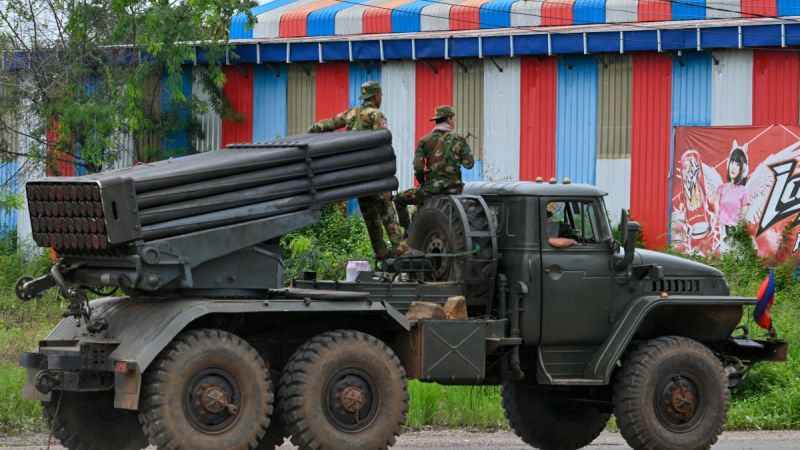Thailand’s acting Prime Minister Phumtham Wechayachai is set to meet his Cambodian counterpart Hun Manet on July 28 in Malaysia, in an urgent diplomatic effort to ease escalating border tensions. The meeting, announced by Bangkok on Sunday, follows a deadly confrontation along the Thai-Cambodian border that left one Thai soldier severely injured.
According to a statement from the Thai Prime Minister’s Office, the talks will be facilitated by Malaysian Prime Minister Anwar Ibrahim, who currently chairs the Association of Southeast Asian Nations (ASEAN). The goal of the dialogue is to de-escalate the situation and restore bilateral relations between the two countries.
“Prime Minister Phumtham Wechayachai will hold peace talks with Mr. Hun Manet, Prime Minister of Cambodia, in Malaysia, under the initiative of Prime Minister Anwar Ibrahim,” the statement read.
Tensions flared on July 24 when a Thai soldier stepped on a land mine during a patrol near the disputed border area. The explosion resulted in the soldier losing his right leg, prompting an armed exchange between Thai and Cambodian forces.
Each side has accused the other of provoking the conflict. Thailand claims the landmine was planted by Cambodian troops, while Phnom Penh has denied the accusation and countered that Thai forces initiated the hostility.
The confrontation led to an exchange of gunfire and artillery shelling, rattling communities near the border and disrupting local security.
In the aftermath of the incident, Thailand has reportedly downgraded its diplomatic engagement with Cambodia. The move raised concerns across the ASEAN bloc about regional stability and the risk of a prolonged dispute between two of its members.
This is not the first time the two countries have clashed over border issues. Similar incidents have occurred in the past, particularly near contested temple sites and demarcation zones. However, both nations had, until now, maintained a relatively cooperative approach in recent years.
Malaysia, taking a proactive diplomatic role under its ASEAN leadership, has stepped in to mediate the crisis. Prime Minister Anwar Ibrahim has called for restraint and emphasized the importance of dialogue in preventing further violence.
Observers hope that the upcoming meeting in Malaysia will result in concrete steps toward de-escalation, including ceasefire agreements, joint investigations, or confidence-building measures along the border.
The international community, including ASEAN partners, will be closely watching the outcome of the talks, as the region strives to maintain its image of political stability and peaceful cooperation.

